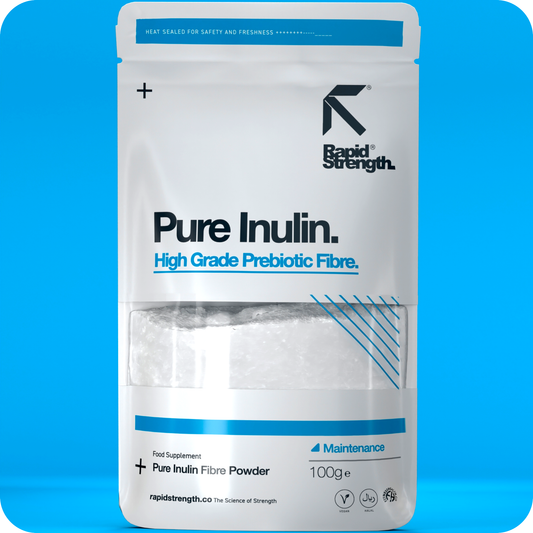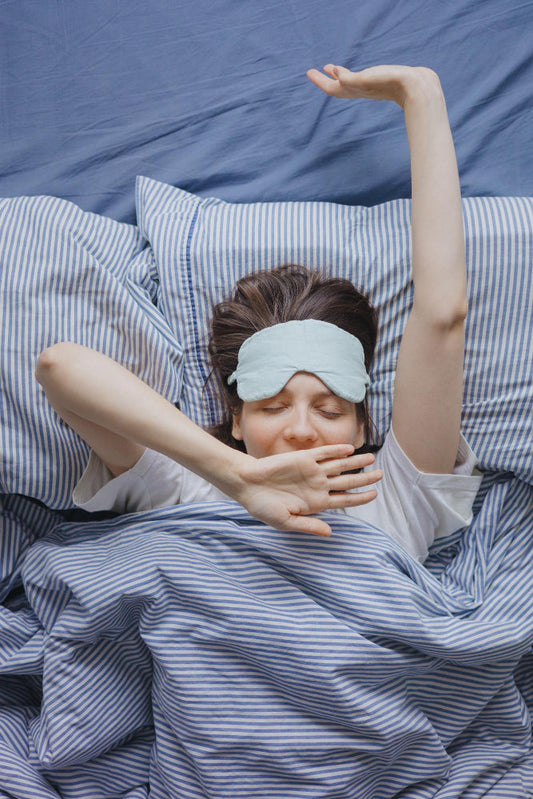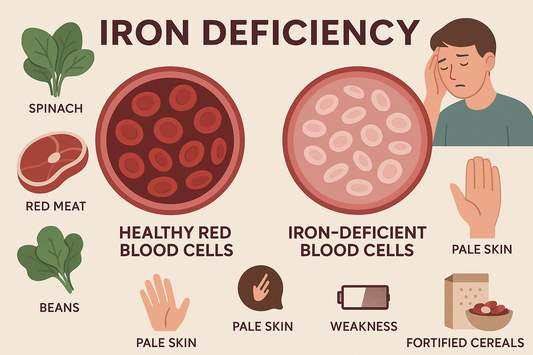Night sweats can significantly disrupt sleep quality and overall well-being, leaving you exhausted and searching for relief. While hormonal changes during menopause are a common cause, night sweats can also result from stress, medications, infections, or other underlying conditions. Fortunately, numerous natural remedies can help reduce the frequency and intensity of night sweats, allowing you to reclaim restful sleep.
Understanding Night Sweats and Their Triggers
Night sweats involve excessive sweating during sleep that can soak through sleepwear and bedding, often accompanied by sudden feelings of intense heat. Unlike normal sweating from warm environments, night sweats occur even in cool rooms and can happen repeatedly throughout the night.
The most common cause is hormonal fluctuations, particularly declining estrogen levels during menopause and perimenopause. Estrogen helps regulate body temperature, and when levels drop, the body's thermostat becomes less stable, triggering inappropriate heat responses.
Other triggers include stress and anxiety, which can activate the sympathetic nervous system and cause temperature dysregulation. Certain medications, particularly antidepressants, blood pressure medications, and hormone therapies, can also contribute to night sweats. Identifying your specific triggers is the first step toward finding effective natural solutions.
Blood sugar fluctuations, particularly nighttime hypoglycemia, can trigger sweating episodes. Alcohol consumption, spicy foods, and caffeine, especially later in the day, can also increase the likelihood of night sweats by affecting your body's temperature regulation systems.

Herbal Remedies: Plant-Based Temperature Regulation
Several herbs have demonstrated effectiveness for reducing night sweats through various mechanisms, from hormonal balancing to nervous system calming. These natural remedies often work best when used consistently over time.
Black cohosh has been extensively studied for menopausal symptoms, including night sweats. This North American herb appears to work by binding to estrogen receptors and helping stabilize temperature regulation. Clinical studies have shown that 20-40mg of standardized black cohosh extract daily can reduce the frequency and intensity of hot flashes and night sweats by 30-50% in many women.
Sage has a long traditional history for treating excessive sweating and has shown promise in modern research. Sage appears to work by affecting the hypothalamus, the brain region that controls body temperature. Fresh sage tea made from 1-2 teaspoons of dried sage leaves steeped for 10 minutes can be consumed 2-3 times daily, or sage extract supplements providing 100-300mg daily may be used.
Red clover contains isoflavones that can provide mild estrogenic effects, potentially helping with hormonal night sweats. Some studies suggest that 40-80mg of red clover isoflavones daily may help reduce menopausal symptoms, though individual responses vary significantly.
Dong quai, used traditionally in Chinese medicine for women's health issues, may help balance hormones and reduce night sweats. However, this herb can interact with blood-thinning medications and should be used cautiously. Typical doses range from 200-400mg of standardized extract daily.
Evening primrose oil contains gamma-linolenic acid (GLA), which may help support hormone balance and reduce inflammatory responses that can contribute to night sweats. Taking 1-3 grams of evening primrose oil daily may provide benefits, though effects often take several weeks to become apparent.

Cooling Techniques and Sleep Environment Optimization
Creating an optimal sleep environment and using targeted cooling strategies can significantly reduce night sweat episodes and improve sleep quality when they do occur.
Room temperature control is fundamental for preventing night sweats. Keep your bedroom between 60-67°F (15-19°C), which is the optimal temperature range for most people's sleep. Using a programmable thermostat can help maintain consistent temperatures throughout the night.
Moisture-wicking sleepwear and bedding can help manage sweating when it occurs. Natural fibers like bamboo and merino wool, or synthetic moisture-wicking fabrics, pull sweat away from your body and allow for better temperature regulation. Avoid synthetic materials that trap heat and moisture.
Cooling mattress pads and pillows can provide localized temperature relief. Gel-infused memory foam, water-cooled mattress systems, or even simple cooling gel pads can help maintain a comfortable sleeping temperature. Some people find that placing a frozen water bottle at their feet provides effective cooling.
Layered bedding allows for quick temperature adjustments during the night. Use lightweight, breathable layers that can be easily added or removed as needed. Keep extra pillowcases and lightweight clothing nearby for quick changes if sweating occurs.
Fans and air circulation can make a significant difference in managing night sweats. A ceiling fan, bedside fan, or even a small personal fan can provide continuous air movement that helps with evaporation and temperature regulation.

Dietary Modifications and Nutritional Support
What you eat and drink, particularly in the hours before bedtime, can significantly influence your likelihood of experiencing night sweats. Strategic dietary modifications can provide meaningful relief.
Avoiding trigger foods is crucial for many people prone to night sweats. Spicy foods, caffeine, alcohol, and high-sugar foods can all trigger temperature dysregulation. Keep a food diary to identify your personal triggers and avoid them, especially within 3-4 hours of bedtime.
Magnesium supplementation may help reduce night sweats by supporting nervous system function and muscle relaxation. Magnesium glycinate or magnesium threonate are well-absorbed forms that are less likely to cause digestive upset. Taking 200-400mg before bedtime may help with both night sweats and sleep quality.
Vitamin E has shown some promise for reducing menopausal night sweats in clinical studies. Taking 400-800 IU of natural vitamin E (d-alpha-tocopherol) daily may help reduce the frequency and intensity of hot flashes and night sweats, though effects typically take 4-6 weeks to become apparent.
Soy isoflavones can provide mild estrogenic effects that may help with hormonal night sweats. Consuming 40-80mg of soy isoflavones daily through supplements or soy foods may provide benefits, though response varies significantly between individuals based on gut bacteria and genetic factors.
Staying hydrated is important, but timing matters. Maintain good hydration throughout the day, but reduce fluid intake 2-3 hours before bedtime to minimize sleep disruptions from bathroom trips while preventing dehydration that can worsen temperature regulation.

Stress Management and Relaxation Techniques
Stress and anxiety are significant contributors to night sweats, making stress management techniques essential components of a comprehensive approach to relief.
Deep breathing exercises can help activate the parasympathetic nervous system and reduce stress-induced night sweats. Practice diaphragmatic breathing for 10-15 minutes before bedtime, focusing on slow, deep breaths that engage your diaphragm rather than shallow chest breathing.
Progressive muscle relaxation involves systematically tensing and releasing muscle groups throughout your body, helping to reduce overall tension and stress. This technique can be particularly effective when practiced regularly before bedtime to promote relaxation and better temperature regulation.
Meditation and mindfulness practices can help reduce stress-related night sweats by calming the nervous system. Even 10-15 minutes of daily meditation can make a significant difference in stress levels and sleep quality. Apps or guided meditations can help beginners establish a consistent practice.
Yoga, particularly gentle or restorative yoga, can help reduce stress and improve sleep quality. Certain poses like legs-up-the-wall pose or supported child's pose can be particularly calming when practiced before bedtime.
Regular exercise during the day can help reduce stress and improve sleep quality, but avoid vigorous exercise within 3-4 hours of bedtime as it can raise body temperature and potentially trigger night sweats.
Hormonal Balance Through Natural Methods
For hormonally-related night sweats, supporting overall hormonal balance through natural methods can provide significant relief over time.
Maintaining stable blood sugar levels helps support hormonal balance and prevents blood sugar-related night sweats. Eat balanced meals with protein, healthy fats, and complex carbohydrates, and avoid large meals or sugary snacks close to bedtime.
Supporting liver function helps your body process and eliminate hormones effectively. Milk thistle, dandelion root, or simply increasing consumption of cruciferous vegetables like broccoli and Brussels sprouts can support liver detoxification pathways.
Adaptogenic herbs like ashwagandha, rhodiola, or holy basil can help your body better manage stress and support overall hormonal balance. These herbs work best when taken consistently over time, typically 300-600mg daily of standardized extracts.
Ensuring adequate sleep itself is crucial for hormonal balance, creating a positive cycle where better sleep supports hormone regulation, which in turn reduces night sweats. Prioritize consistent sleep schedules and good sleep hygiene practices.
Weight management can significantly impact hormonal night sweats, as excess body fat can contribute to temperature regulation issues and hormonal imbalances. Even modest weight loss can provide meaningful improvements for many people.

Timing and Lifestyle Modifications
When and how you implement various strategies can significantly affect their effectiveness for managing night sweats.
Meal timing can influence night sweats, with large or spicy meals close to bedtime increasing the likelihood of temperature dysregulation. Finish eating at least 3 hours before bedtime, and if you need a bedtime snack, choose something light and balanced.
Exercise timing affects body temperature regulation throughout the day. While regular exercise is beneficial for overall hormone balance and stress management, avoid intense workouts within 3-4 hours of bedtime as they can elevate core body temperature.
Shower timing can provide strategic cooling. A lukewarm shower before bedtime can help lower your core body temperature and may reduce the likelihood of night sweats. Avoid hot showers close to bedtime as they can have the opposite effect.
Supplement timing can affect effectiveness and minimize potential side effects. Take herbs and supplements consistently at the same time each day, and if they cause any alertness, take them earlier in the day rather than close to bedtime.
Creating a pre-sleep cooling routine can help prepare your body for temperature regulation during sleep. This might include dimming lights, reducing room temperature, changing into cool sleepwear, and practicing relaxation techniques.
![]()
Monitoring and Tracking Progress
Keeping track of your night sweats and potential triggers can help you identify what works best for your specific situation and make necessary adjustments to your approach.
Maintaining a night sweat diary can help identify patterns and triggers. Record factors like room temperature, foods eaten, stress levels, sleep quality, and the frequency and intensity of night sweats. This information can help you fine-tune your approach.
Temperature tracking using wearable devices or simple bedside thermometers can help you understand your body's temperature patterns and identify optimal room temperatures and cooling strategies.
Symptom severity scales can help you objectively track improvements over time. Rate your night sweats on a scale of 1-10 for frequency and intensity, and track changes as you implement different natural remedies.
Sleep quality assessment helps you understand the overall impact of night sweats and track improvements. Monitor factors like time to fall asleep, number of awakenings, and morning energy levels to gauge the effectiveness of your interventions.
Combination Approaches for Maximum Effectiveness
The most effective approach to managing night sweats often involves combining multiple natural strategies tailored to your specific triggers and circumstances.
Creating a comprehensive cooling strategy might include optimizing your sleep environment, using cooling products, practicing stress reduction techniques, and implementing dietary modifications simultaneously for maximum effect.
Layered interventions allow you to address multiple potential causes of night sweats simultaneously. For example, you might combine black cohosh supplementation with stress management techniques and sleep environment optimization.
Seasonal adjustments may be necessary as your needs change with weather, stress levels, and hormonal fluctuations. What works well in winter might need modification during hot summer months.
Gradual implementation of multiple strategies can help you identify which interventions provide the most benefit while avoiding overwhelming your system with too many changes at once.

When to Seek Additional Support
While natural remedies can be highly effective for many people, certain situations warrant additional medical evaluation or support.
Sudden onset of severe night sweats, especially when accompanied by other symptoms like fever, weight loss, or fatigue, should be evaluated by a healthcare provider to rule out underlying medical conditions.
Night sweats that don't respond to natural interventions after 6-8 weeks of consistent implementation may benefit from medical evaluation to identify underlying causes or consider additional treatment options.
Night sweats that significantly impact your quality of life, relationships, or work performance may warrant more aggressive intervention, including consideration of hormone therapy or other medical treatments alongside natural approaches.
The key to successfully managing night sweats naturally lies in identifying your specific triggers, implementing appropriate combinations of remedies, and maintaining consistency with your chosen approaches. Most people find that a personalized combination of environmental modifications, stress management, dietary adjustments, and targeted natural supplements provides the most effective relief. Remember that natural remedies often take time to show full effectiveness, so patience and consistency are essential for achieving the best results.














